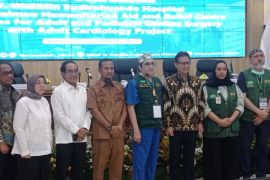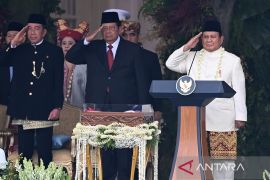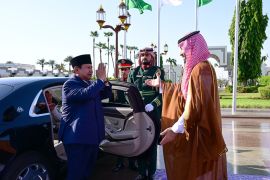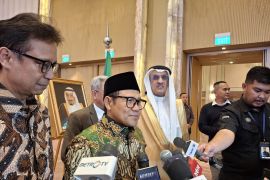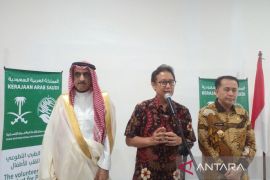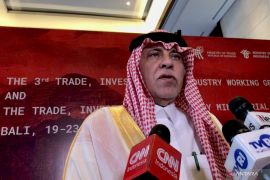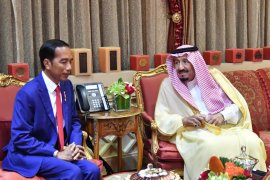"The names of the leaders of organizations that will be received by His Majesty King Salman is decided by the Ministry of Foreign Affairs of Indonesia," Saudi Arabia`s Ambassador to Indonesia, Osama bin Mohammed Abdullah Al Shuaibi, said.Jakarta (ANTARA News) - Saudi Arabias Ambassador to Indonesia, Osama bin Mohammed Abdullah Al Shuaibi, said King Salman bin Abdul Aziz al-Saud will meet leaders of a number of Islamic organizations during his visit to Istiqlal Mosque in Jakarta.
"The names of the leaders of organizations that will be received by His Majesty King Salman is decided by the Ministry of Foreign Affairs of Indonesia," Osama said here, Tuesday.
King Salman is scheduled to visit the Istiqlal Mosque on March 2, a day after a bilateral meeting with President Joko Widodo in Bogor, West Java province.
In his short visit for 30 minutes at the Istiqlal Mosque, King Salman will conduct a prayer.
Earlier, Indonesian Minister of Religious Affairs Lukman Hakim Saifuddin hoped King Salman would meet with a number of interfaith leaders for a dialogue.
"Were trying to have a dialogue in order to make the same perception in reducing extremism," Lukman said.
King Salmans visit to Indonesia will bring along some 1,500 delegate members, which ten of them are ministers and 25 are princes.
King Salams visit is a response to the invitation of President Joko Widodo after visiting Saudi Arabia in 2015.
In a bilateral meeting between the two leaders, the governments of Indonesia and Saudi Arabia will agree on ten memorandum of understanding in the field of security, health, education, culture, investment, SMEs, agriculture, fisheries, civil aviation operations, as well as matters concerning Islam.
"In connection with the Ministry of Religious Affairs, the MoU is on the conduct of Hajj and Umrah pilgrimage, and the management of waqaf (benefaction)," Lukman said.
According to the minister, Saudi Arabia is more experienced in using waqaf (an inalienable charitable endowment under Islamic law, which typically involves donating a building, plot of land or other assets for Muslim religious or charitable purposes with no intention of reclaiming the assets) as a means to improve peoples welfare.
"Saudi Arabia has a lot of experiences in managing waqf. We want to develop the Islamic endowments not only for mosques or schools, but also for productive efforts so that the value of the property can be widely perceived by people," Lukman added.(*)
Editor: Heru Purwanto
Copyright © ANTARA 2017
